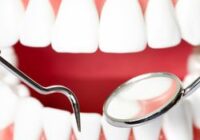
Maybe not here in San Diego, but elsewhere in the country, winter means cold. But just because it’s warm in Southern California doesn’t mean you won’t encounter a chill on spring break or your next vacation – and that chill can harm your body in ways you may not realize. That’s because when we get cold sometimes we experience the involuntary phenomenon of chattering teeth. So, what’s up with that? Why do our teeth chatter – and what does chattering teeth mean for your oral health?
What Causes Chattering Teeth?
Chattering teeth is essentially just a shiver, but centralized in the jawbone instead of the rest of the body. This causes the jawbone to rapidly move up and down.
Why Do Teeth Chatter?
The human body shivers when it’s cold as a way of warming us up. Basically, our skin has tiny receptors that send messages to the nerves and cause the body to move involuntarily to warm up.
Is Chattering Dangerous for Oral Health?
Chattering teeth due to the cold probably won’t harm you if it’s brief, but you may want to dress warmer if you plan to stay outdoors for a while.
There are other reasons our teeth chatter, though, including bruxism (teeth grinding). Chattering teeth can also be caused by a condition called oromandibular dystonia, which causes involuntary movements of the face and jaw muscles.
Can Chattering Be Prevented?
If your teeth are chattering outside, go back inside and warm up! If you plan on staying outdoors for an activity such as a winter sport, consider wearing a mouth guard to protect your teeth from impact and chattering.
If you grind your teeth or believe you may have oromandibular dystonia, please contact Dr. Abelar for a consultation and a discussion of your treatment options. To schedule an appointment or for any questions, please call (858) 866-9692.






